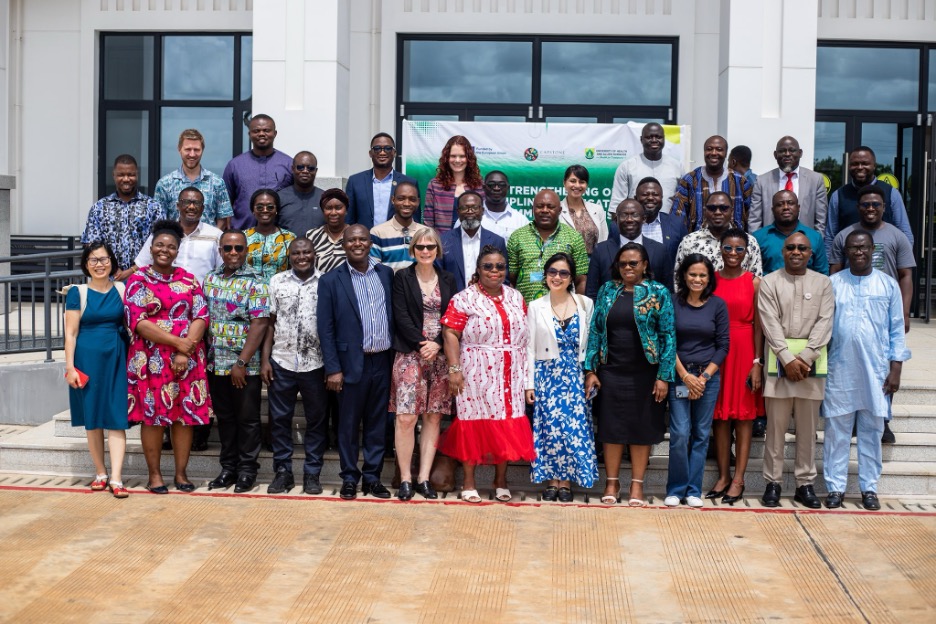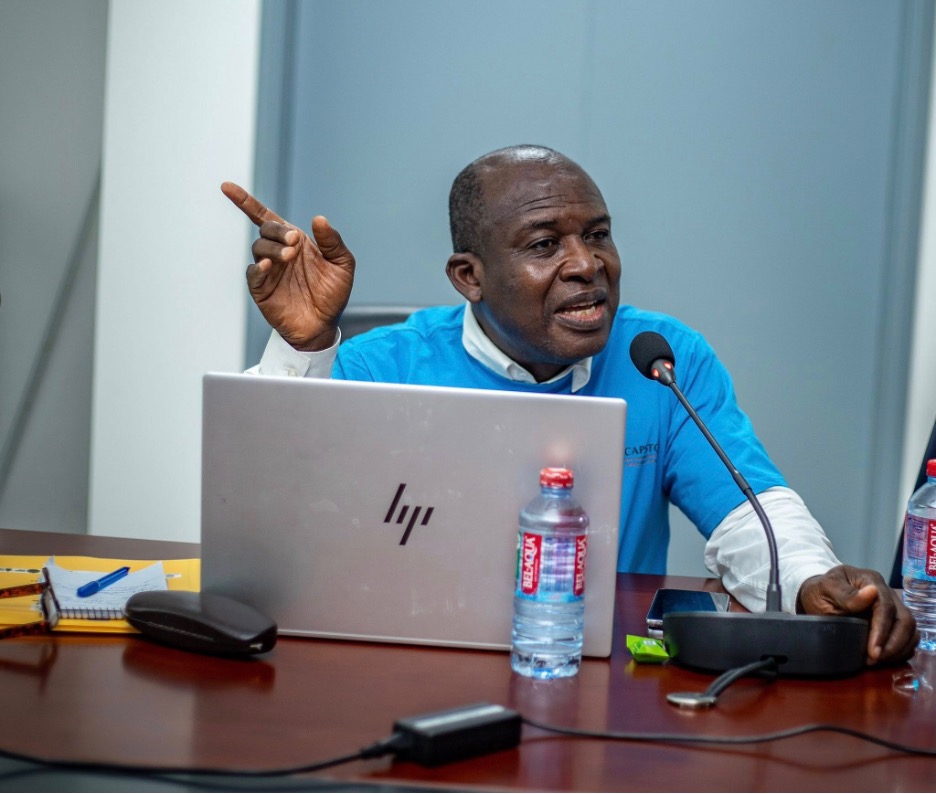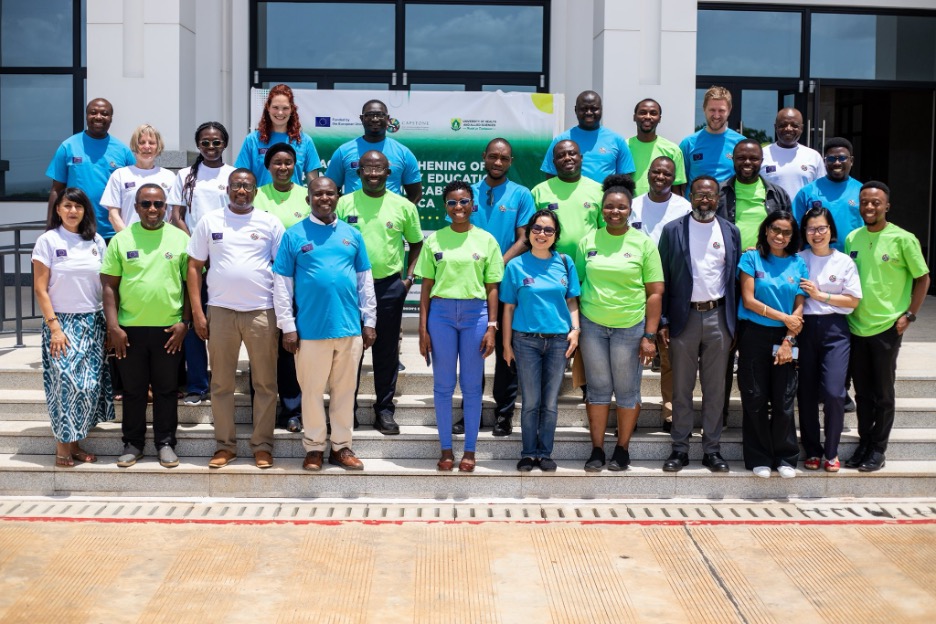
The University of Health and Allied Sciences (UHAS) hosted a key Consortium Meeting and Train-the-Trainer Workshop for the Capacity Development of Transdisciplinary Education for Non-Communicable Disease Care in West Africa (CAPSTONE) project from Sunday, May 4, 2025 to Saturday, May 10, 2025. This project is an innovative European Union Erasmus+ funded initiative aimed at strengthening capacity for Non-Communicable Diseases (NCD) care across West Africa.
The international collaborative project brought together prestigious academic institutions from Ghana, The Gambia and three European countries to develop a transdisciplinary education approach for healthcare professionals, focused specifically on addressing the region's growing NCD burden. In all, eight institutions across West Africa and Europe participated. They include the University of Ghana, Kwame Nkrumah University of Science and Technology (Ghana), University of Health and Allied Sciences (Ghana) and the University of The Gambia, representing West Africa. The European partners included the University Medical Center Utrecht and Elevate (Netherlands), University of Heidelberg (Germany) and Institute of Tropical Medicine (Antwerp, Belgium).
The project began conceptual development in 2021 and secured funding in 2023 to present a holistic approach to address the NCD crisis. The consortium has so far developed six specialized courses focusing on different aspects of NCD management, care, prevention and control. There are courses on Implementation Science, Healthcare Finance with a specific focus on NCDs and digital technology applications in healthcare delivery. At the heart of the CAPSTONE project is an innovative teaching methodology known as Challenge-Based Learning (CBL) which is a collaborative and hands-on teaching approach that involves students, teachers, families and community members in real-life problem identification and problem solving.
The workshop was opened by the Vice Chancellor of UHAS, Professor Lydia Aziato in a brief ceremony, during which she cited alarming global statistics and highlighted the urgent need for strengthening transdisciplinary education, noting that, ‘Non-Communicable Diseases have become the predominant cause of morbidity and mortality globally, but more especially in low and middle-income countries such as Ghana and The Gambia.’
The Vice Chancellor however expressed confidence that the CAPSTONE project would produce very useful solutions to address the growing NCD crisis in the West African region.

The Principal Investigator of the project, Professor Kerstin Klipstein-Grobusch from the University Medical Center, Utrecht (UMCU), gave an overview and insight of the project,
what it involves and the possible challenges. She emphasized the uniqueness of the project in enabling co-creation of courses aimed at strengthening capacity for health professionals in West Africa. She commended UHAS leadership for their support for and commitment to the project and expressed hope that academic faculty would benefit from the Challenge-Based Learning (CBL) approach which they could apply across various areas.
The CAPSTONE Team Lead in Ghana and the former Dean of UHAS Fred N. Binka School of Public Health, Professor Paul Amuna, emphasized the shifting health landscape in the region. He said ‘NCDs have become the leading cause of death and disability, particularly in developing countries such as Ghana and it is increasing steadily.’ 
Professor Amuna said the Training-of-Trainers workshop at UHAS marked a critical step in the project's implementation. ‘We are focusing on the trainers or the teachers at this point, to bring them up to speed in terms of the teaching and learning approaches that we want to introduce.’ Professor Amuna explained. He said the goal of the project was to train up to 50 university teachers in the target institutions across the countries.
The reality of the growing NCD burden in West Africa was further underscored by the Pro-Vice Chancellor of UHAS, Professor Frank Edwin, who shared a personal experience. He said, ‘When I was coming here (Ho, Ghana) to work, I did not think there were so many patients with hypertension. In 2019, there were only 300 patients. And then, by 2022, we were seeing over 2,600. This is a very present problem.’
The Chief Executive Officer (CEO) of Ho Teaching Hospital, Dr. John Tampuori, pointed out some systemic challenges facing the healthcare system in addressing NCDs. He said, ‘We used to think as a developing country that malaria and infectious diseases were at the top of the table, but suddenly we have realized we have moved from there and Non-Communicable Diseases have come to take over. This is a situation we were not prepared for as a nation.’

Following the intensive train-the-trainer sessions and consortium meeting, the project team conducted community outreach activities in the Afadjato South District of the Volta Region to demonstrate their commitment to addressing NCDs at the grassroots level through transdisciplinary approaches. Mr. Christopher Tii Mbabil briefed the CAPSTONE team on the Networks of Practice (NOP) concept and its application to NCD prevention and care at the District Health Directorate at Ve.